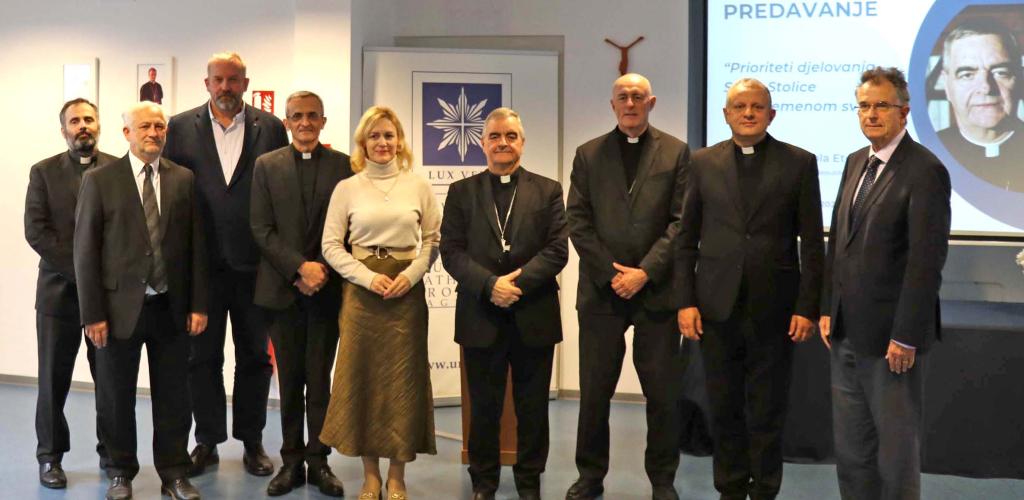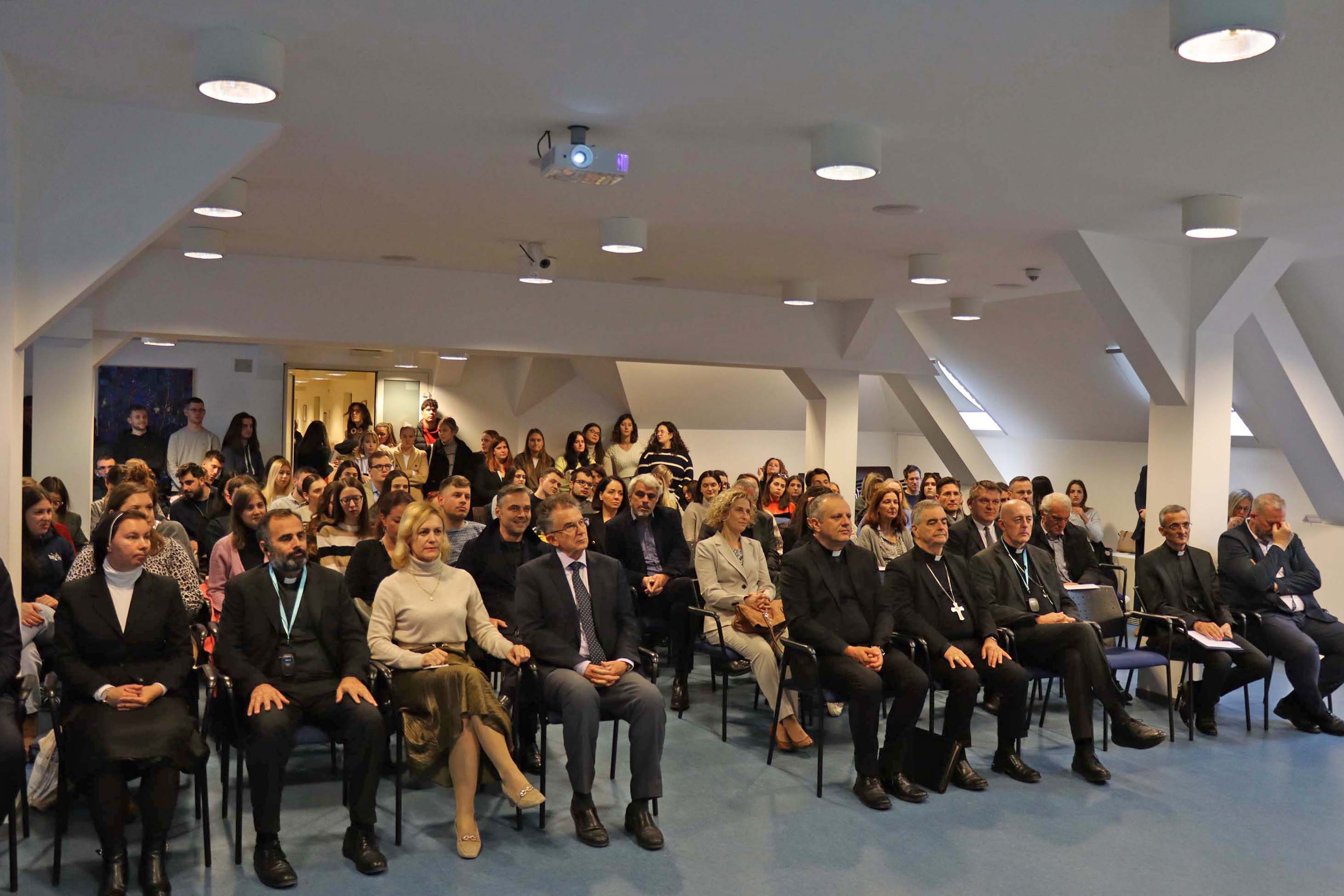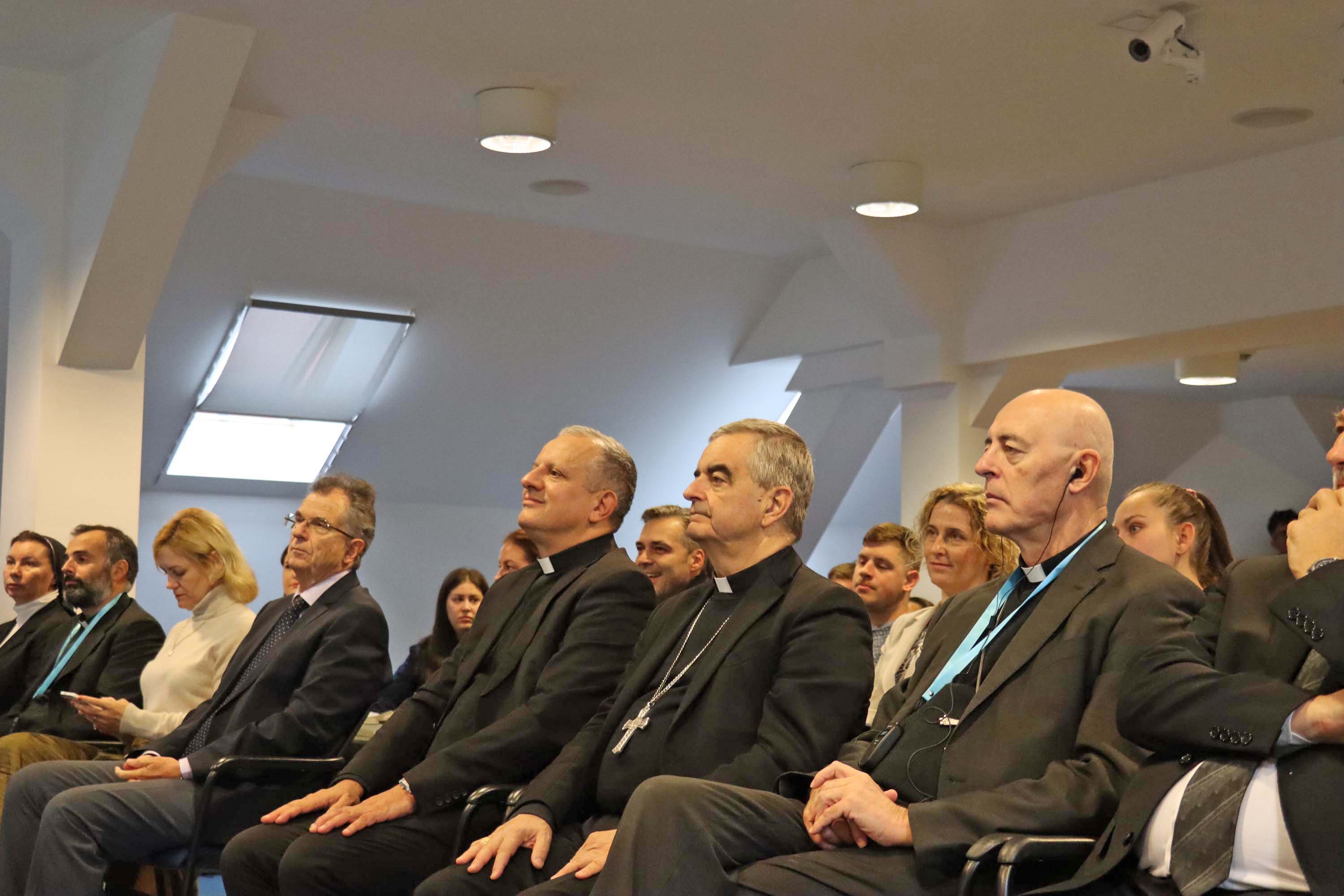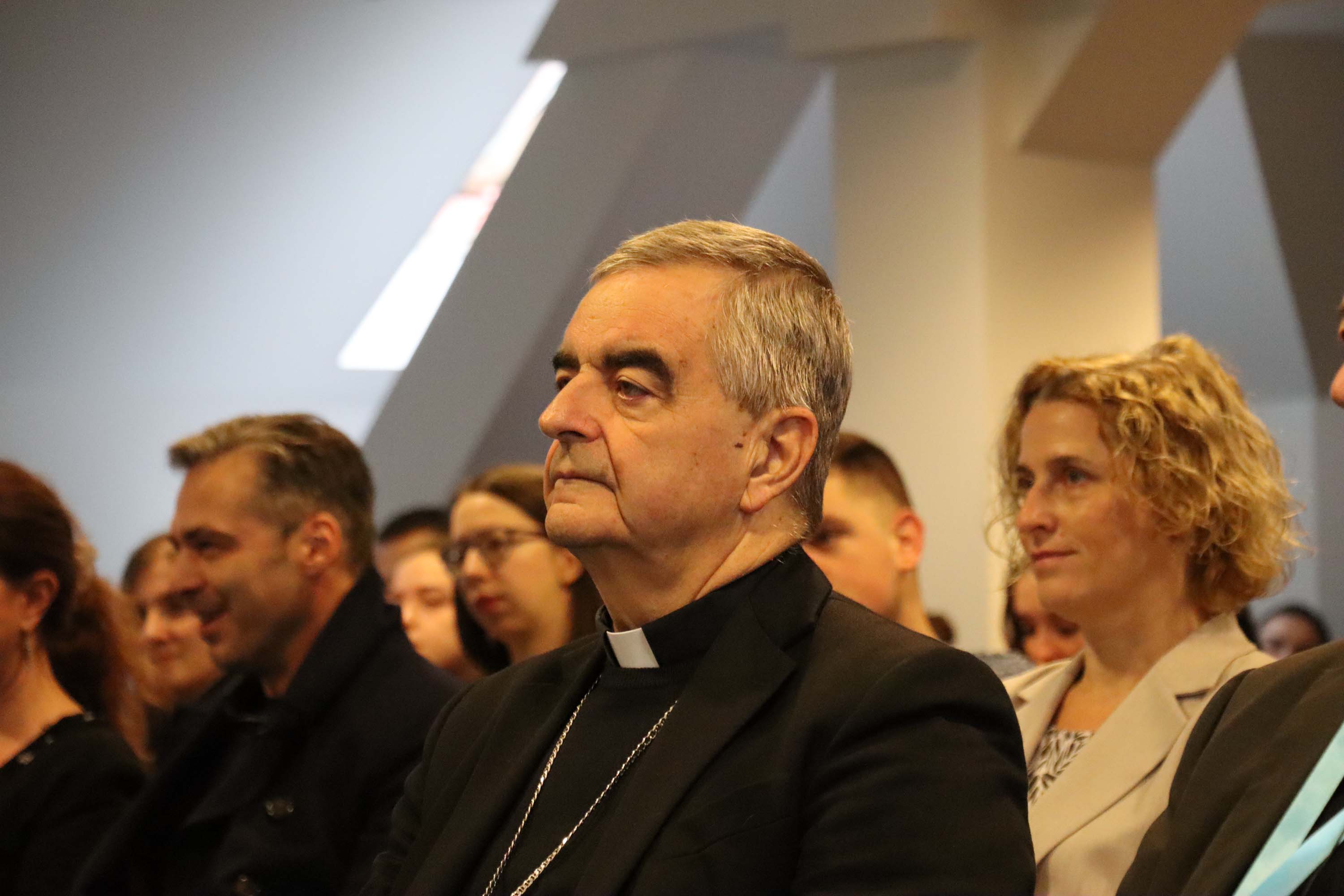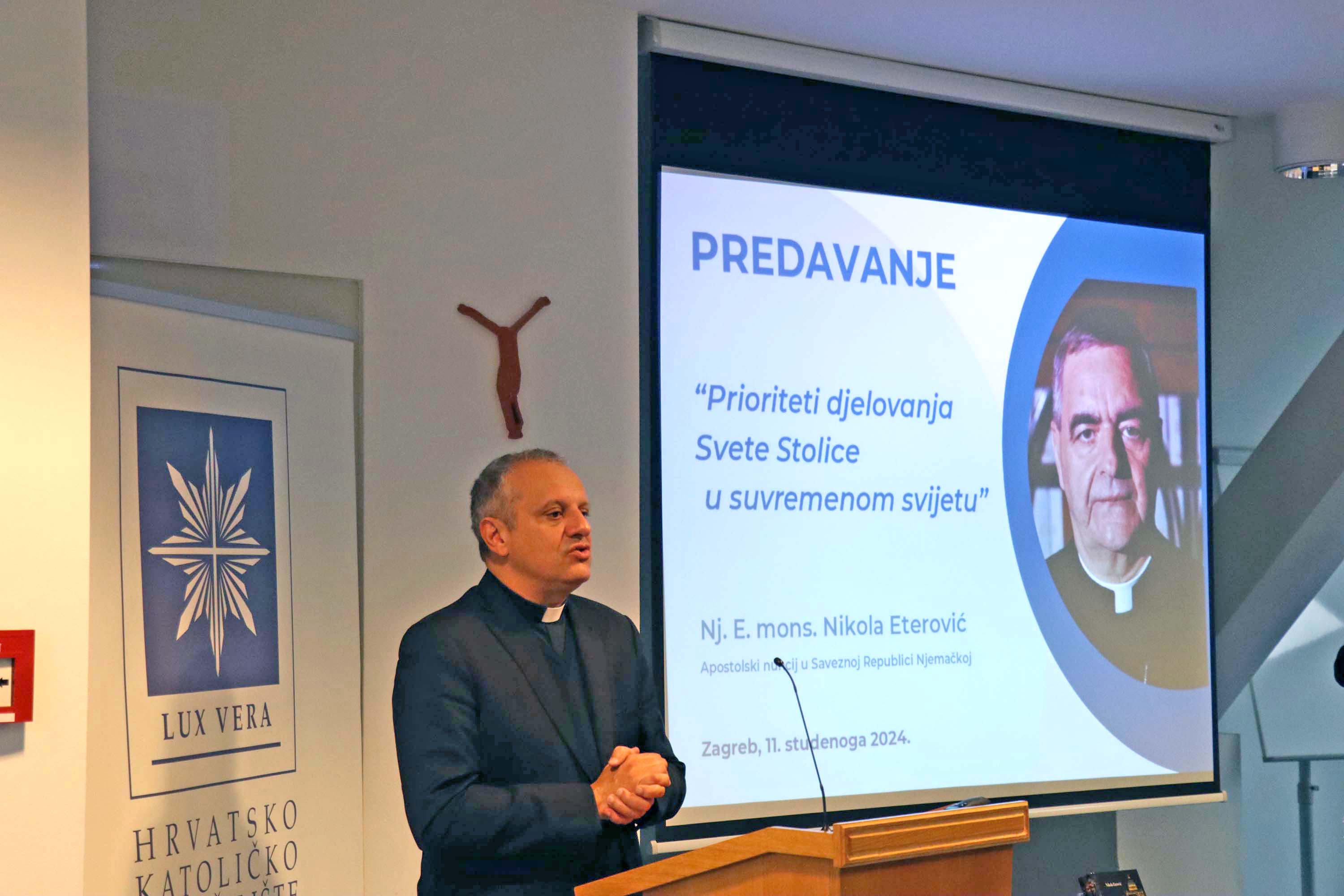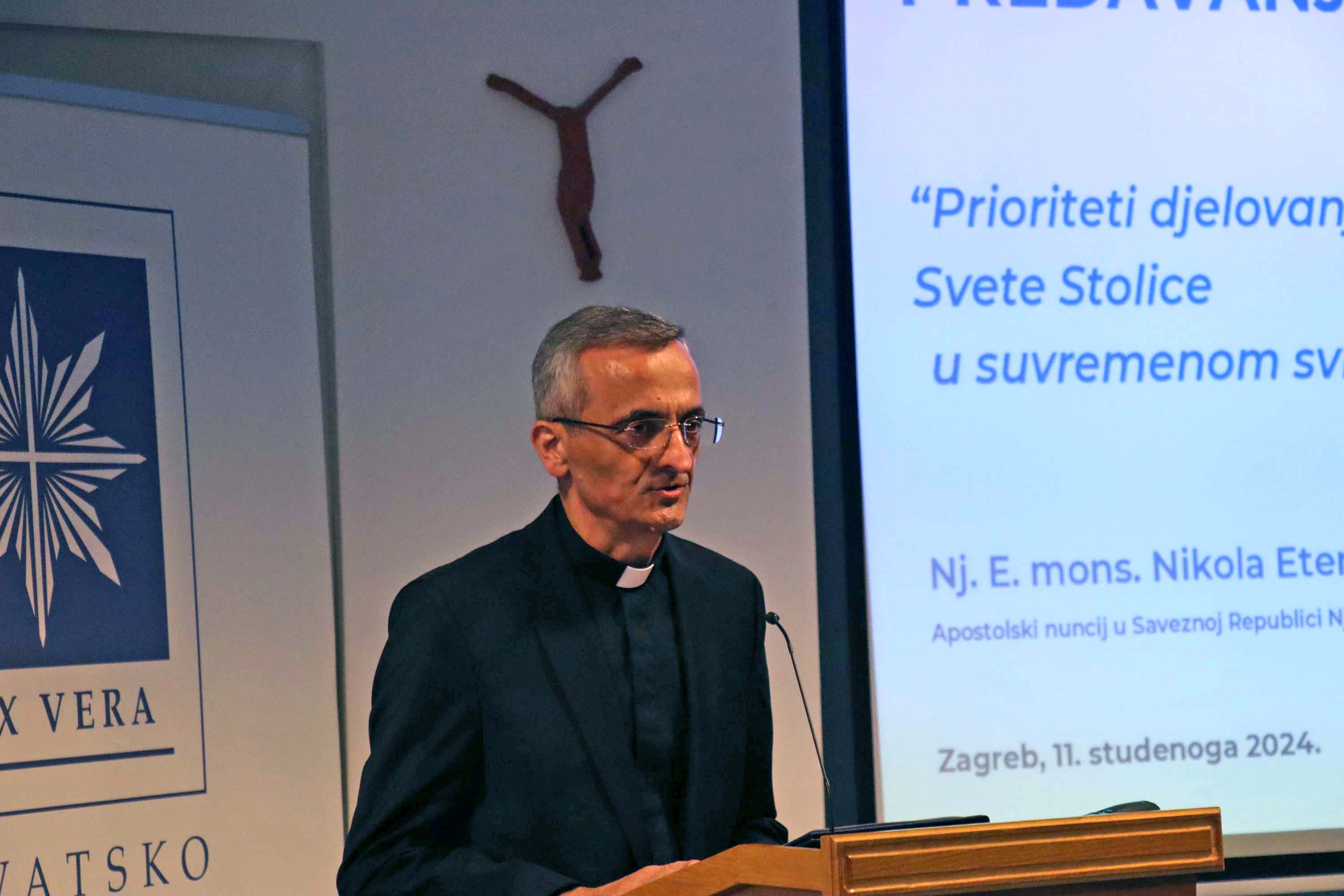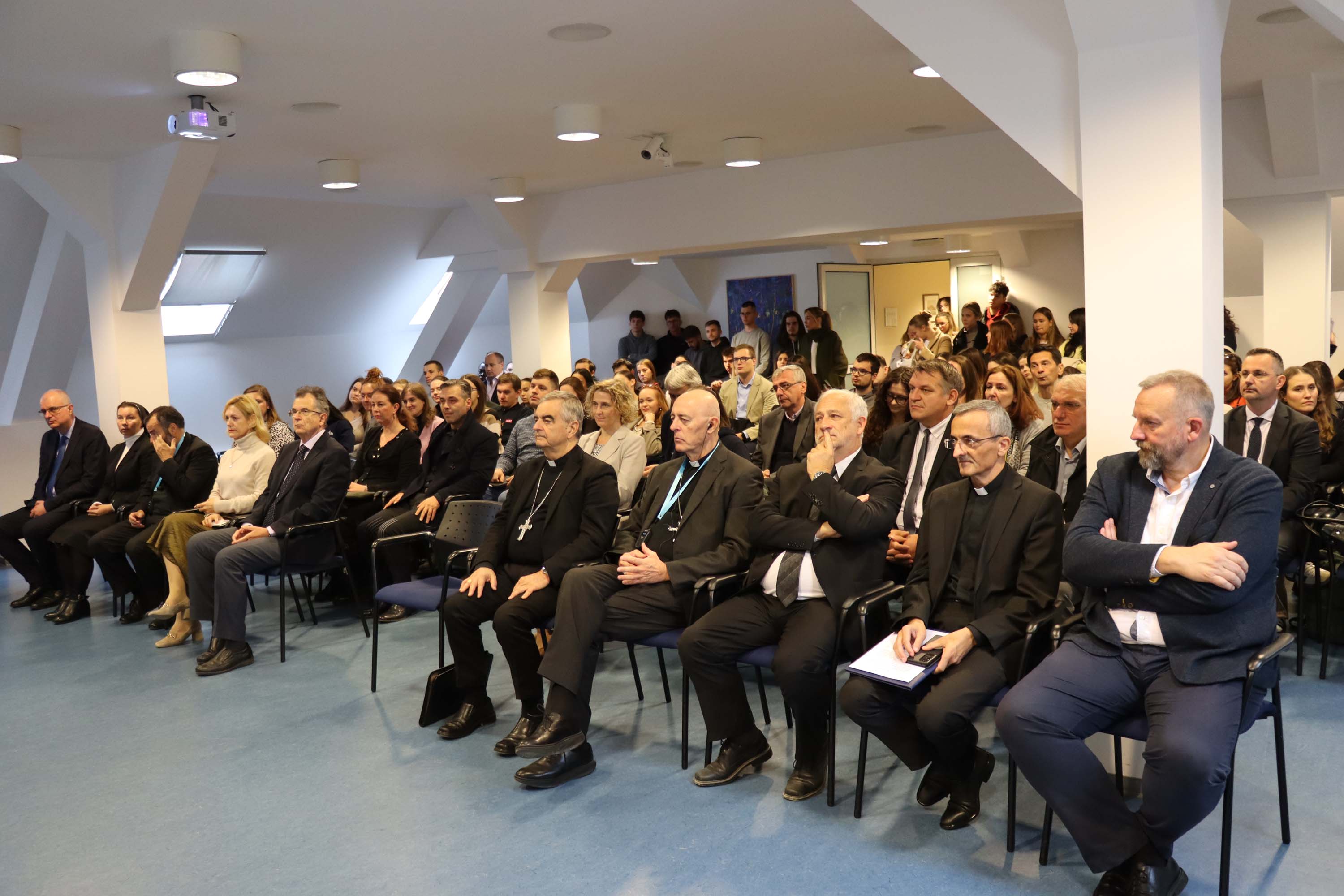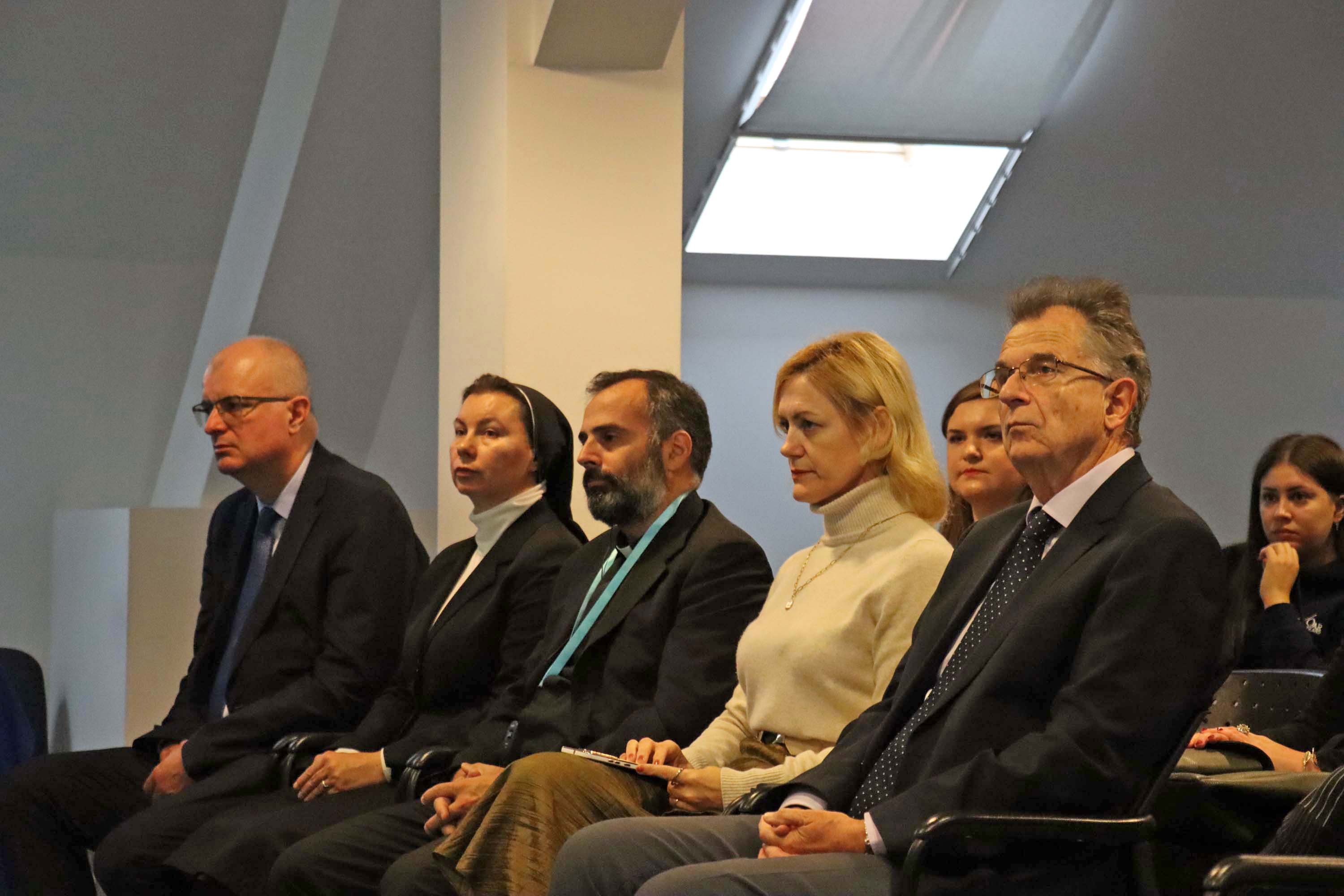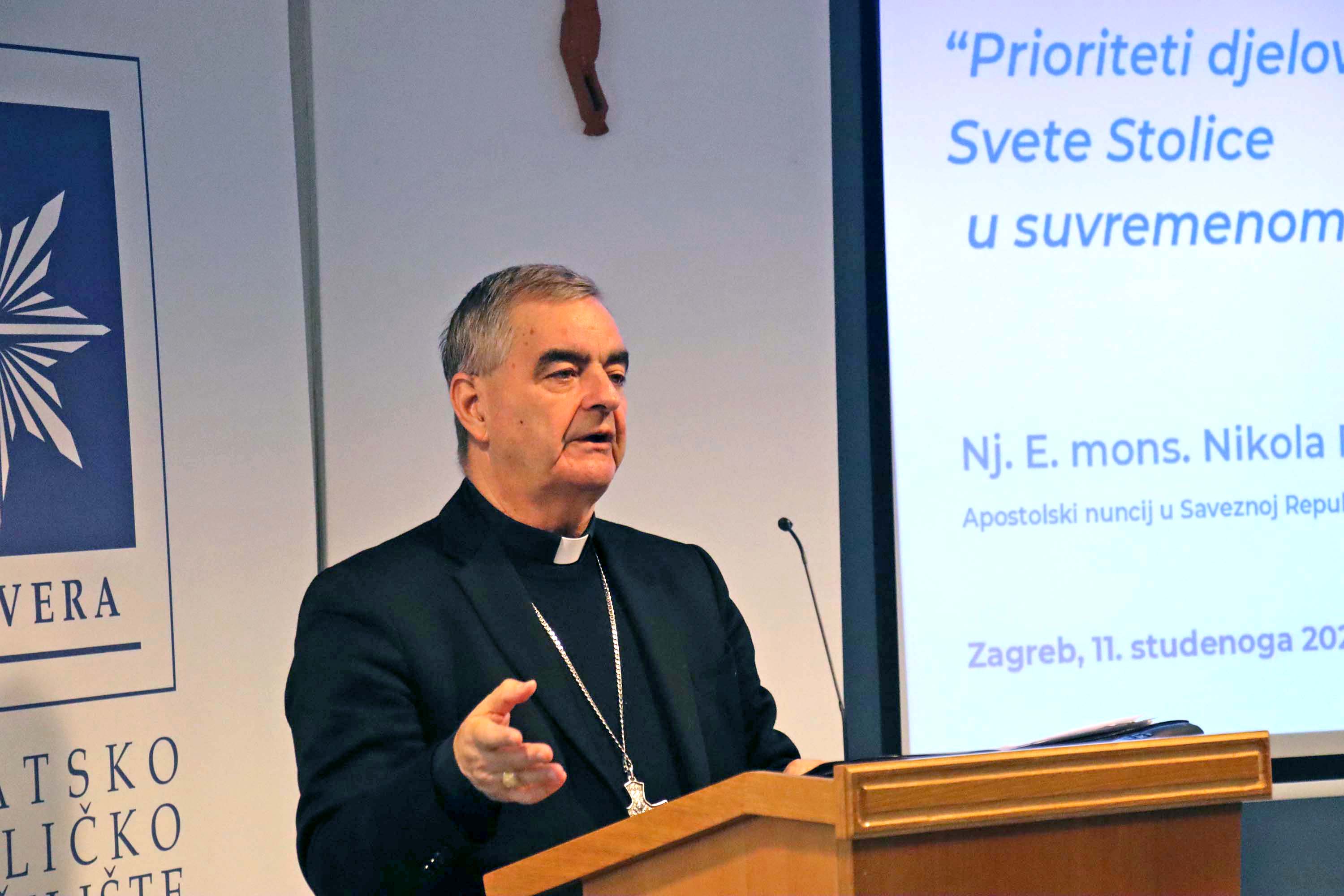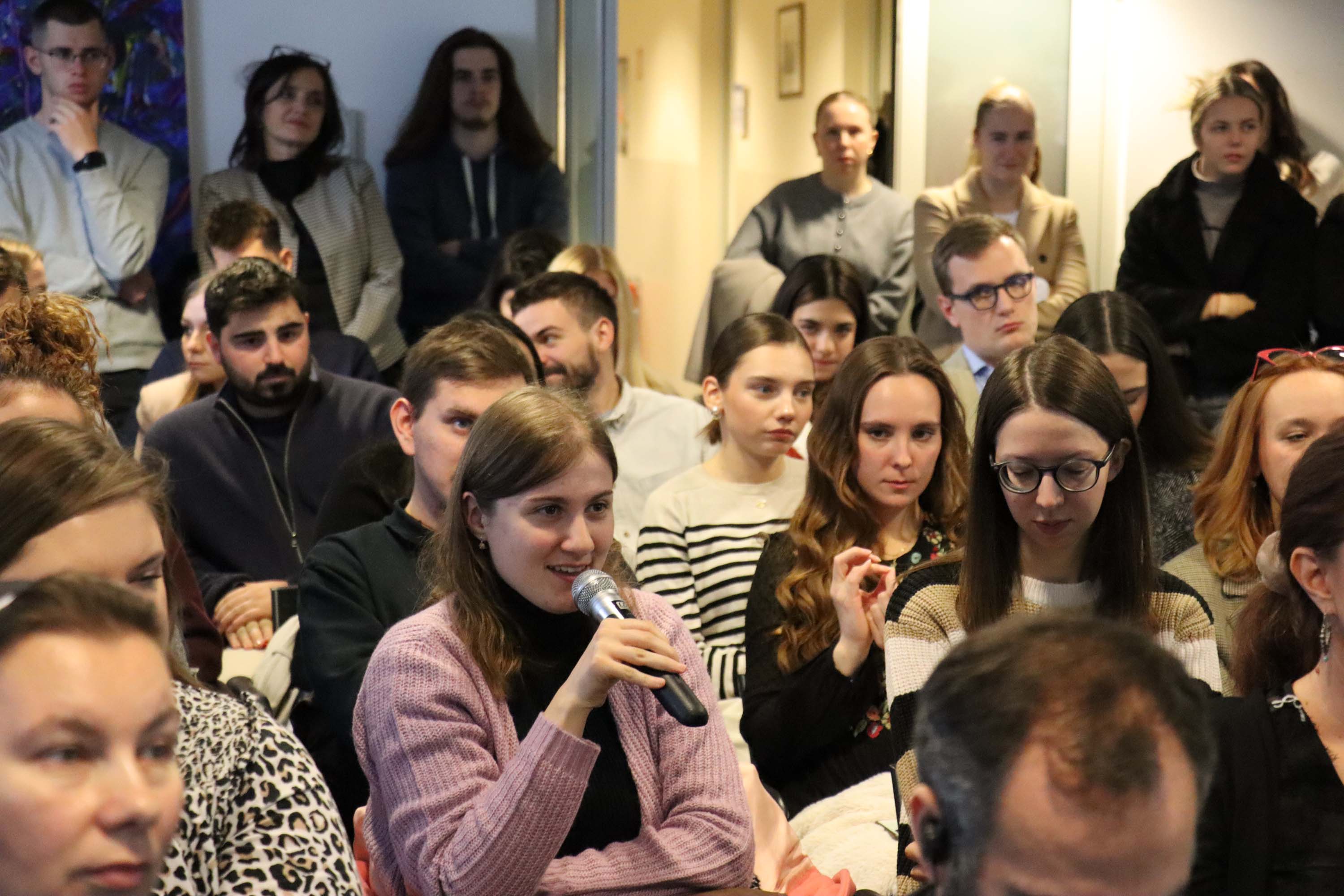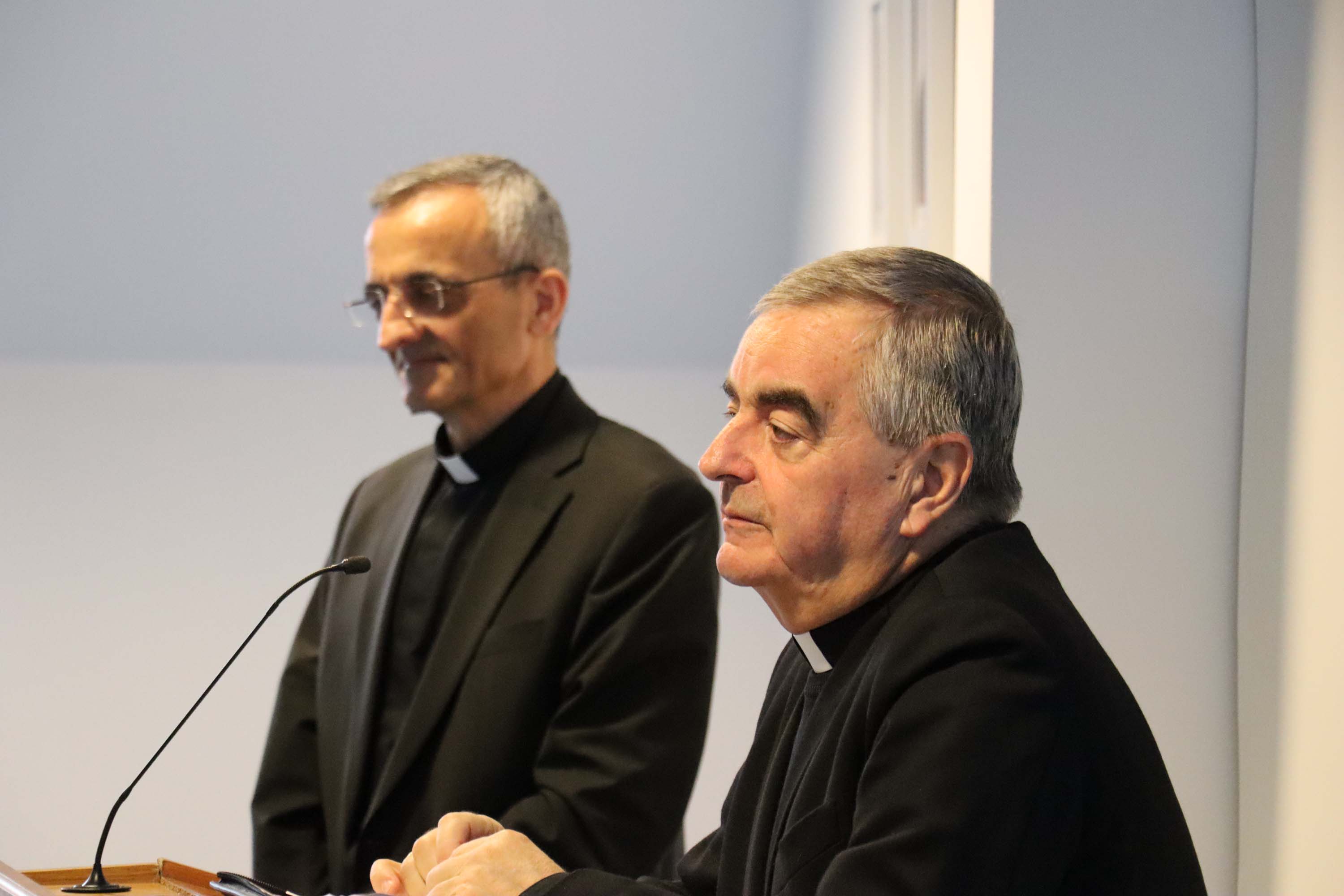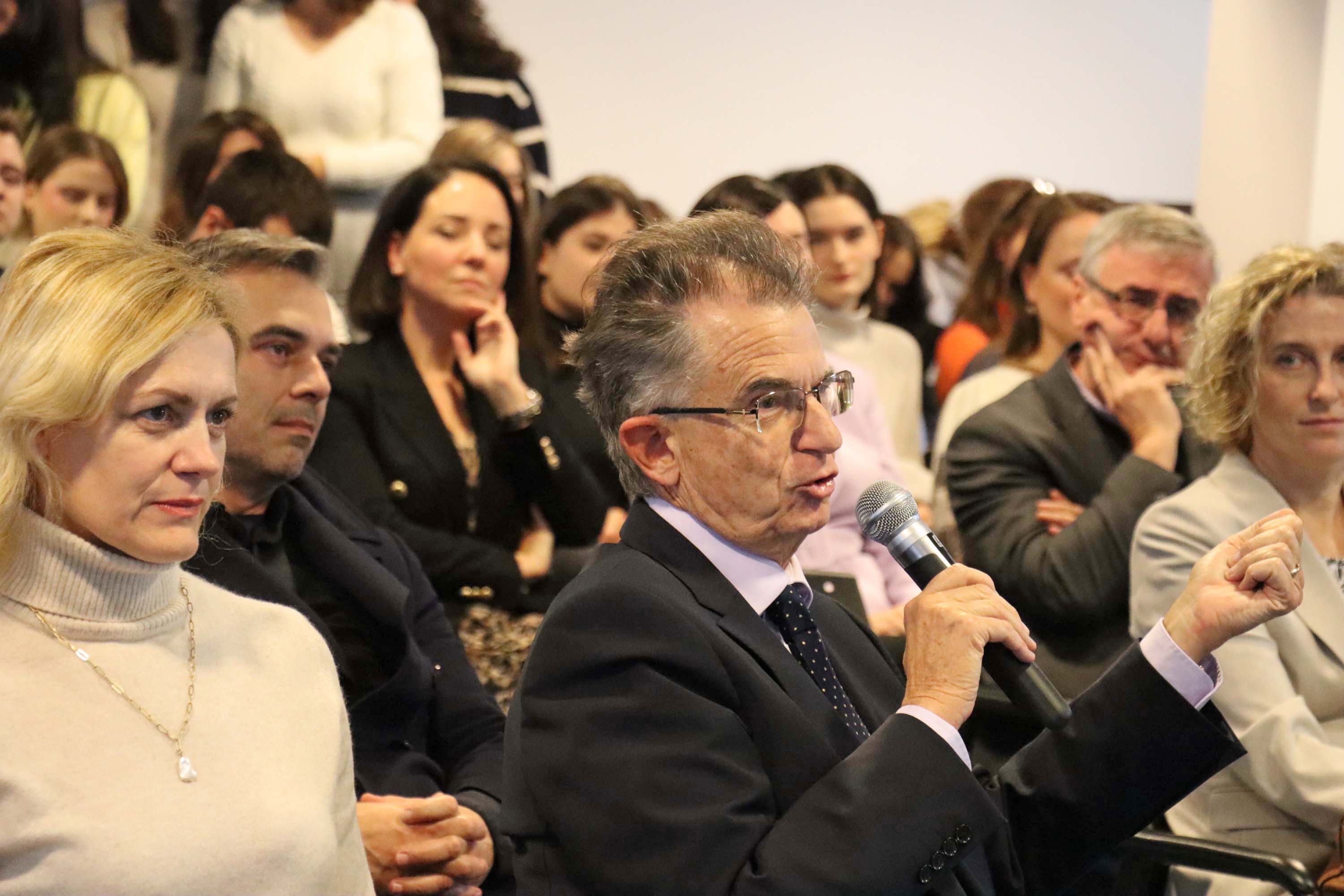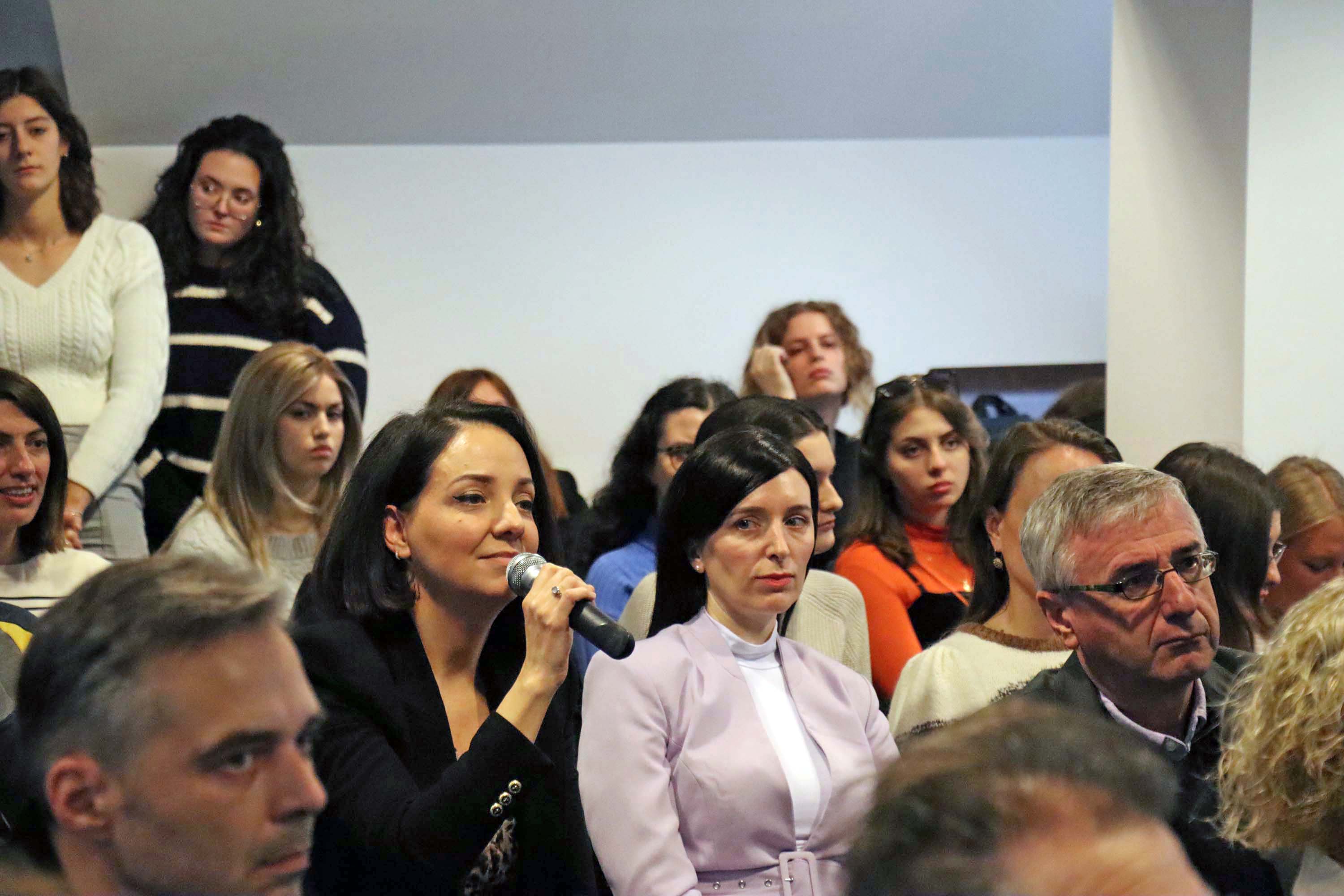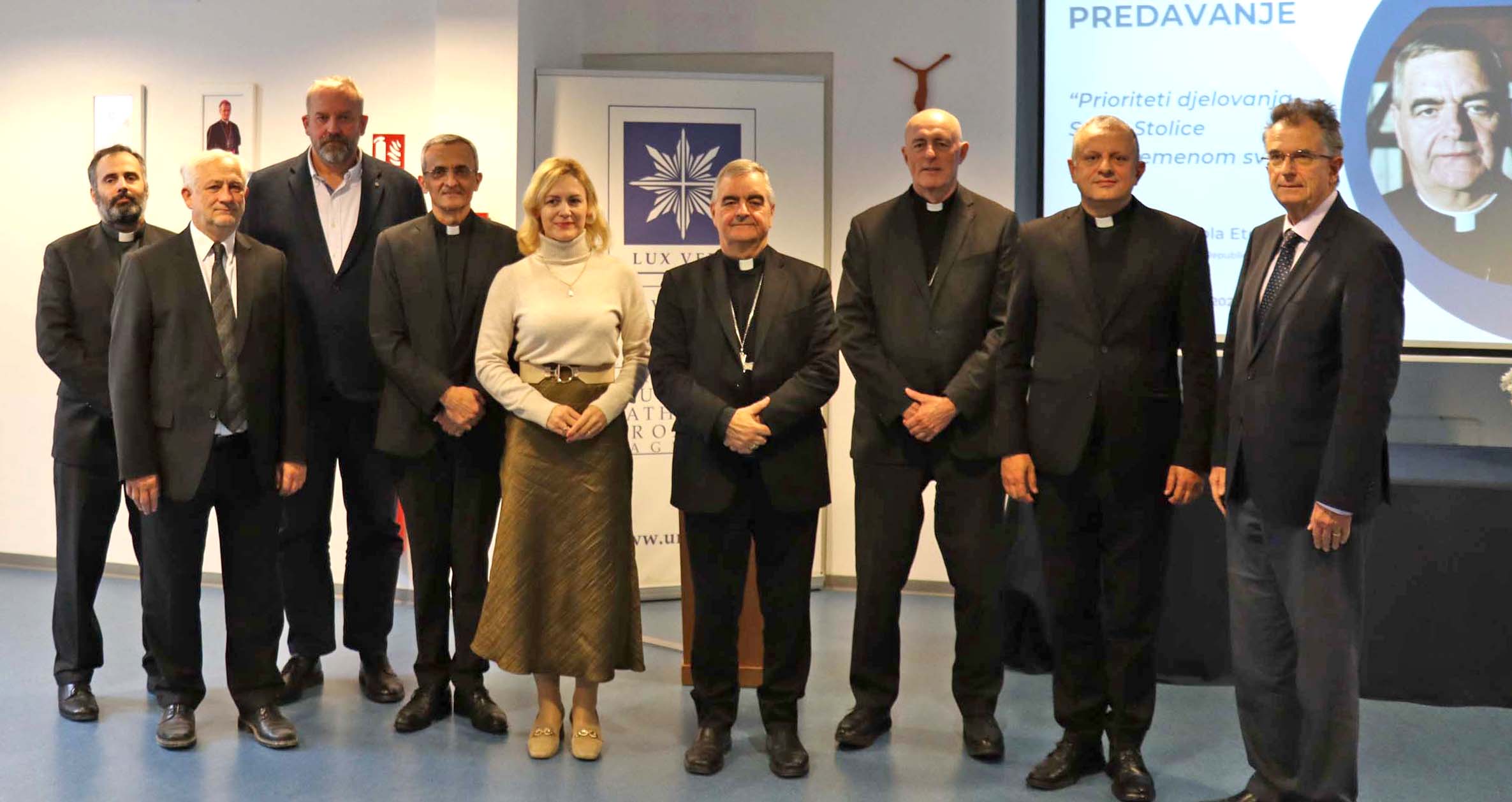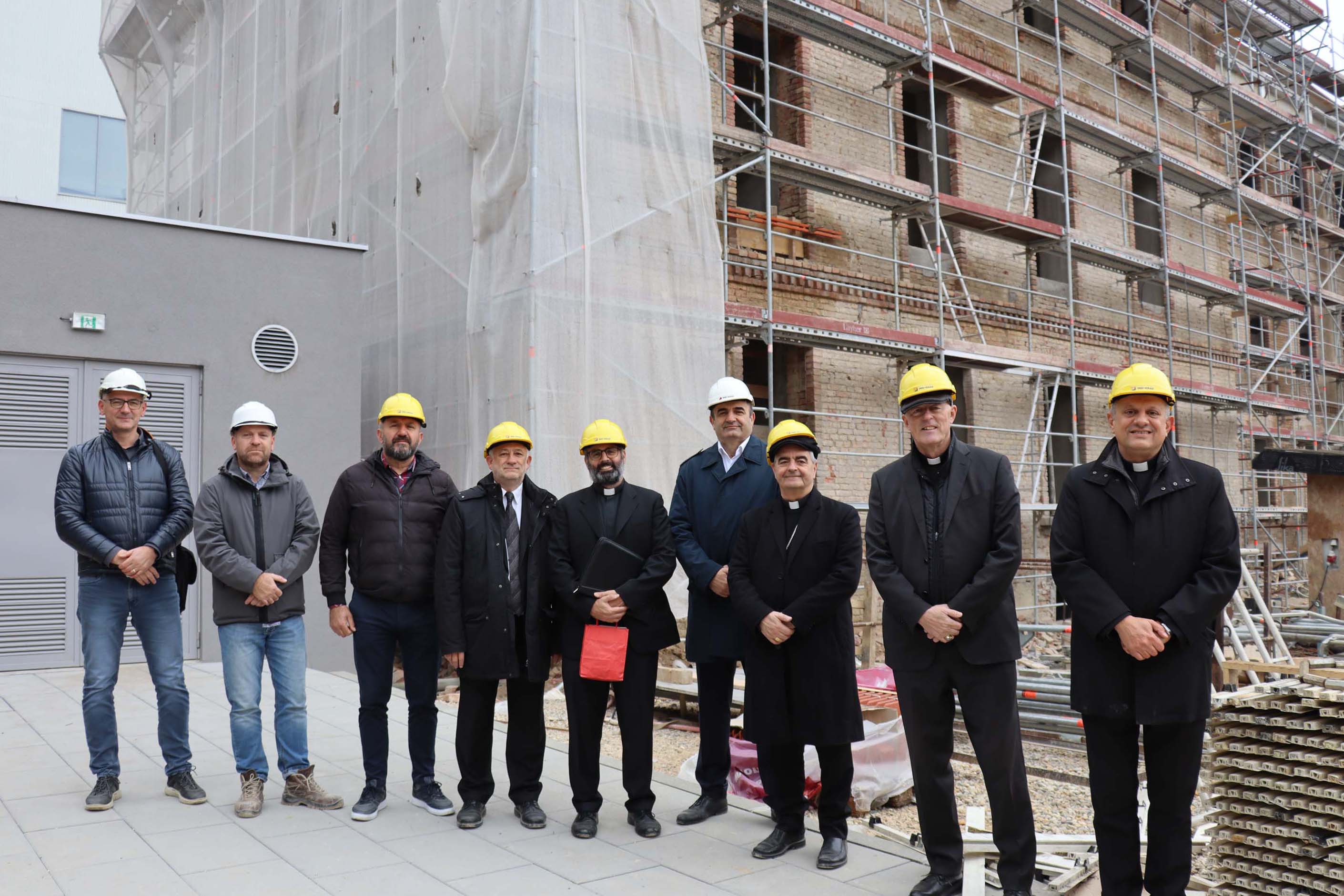Share
Msgr. Eterović's lecture at CUC
Apostolic Nuncio in Federal Republic of Germany Archbishop Nikola Eterović, PhD, held a lecture "Priorities of the Holy See in the Modern World" at the Catholic University of Croatia on Monday, November 11, 2024.
The lecture was attended by the rector, prof. Željko Tanjić, PhD, and the University's management board, employees and students, together with the apostolic nuncio in the Republic of Croatia, Msgr. Giorgio Lingua and the secretary of the Apostolic Nunciature, Msgr. Alvaro Ernesto Isurieta Y Sea.
Rector Tanjić greeted Msgr. Eterović, thanking him for his prayers and interest in the development of the Catholic University of Croatia, after which the vice-rector for quality, identity and mission of the University, prof. Ante Crnčević, PhD, presented the biography of Msgr. Eterović.
In his lecture, Msgr. Eterović spoke about the challenges that the Catholic Church encounters in the current complex world situation, highlighting the priorities in the diplomacy of the Holy See.
Msgr. Eterović highlighted evangelization as a priority by which the Holy See contributes to the transmission of the teachings of the Catholic Church. At the same time, great emphasis is placed on religious freedoms, which diplomacy requires and supports, and which are regulated by state legislation. He pointed out through many examples of violations, but also of respect for religious freedom in the world. One of the priorities is the service of love through the activities of Caritas, of which there are 165 at the national level, and then there is talk of thousands of hospitals, dispensaries, kindergartens, educational institutions, orphanages, homes for the homeless, and assistance to refugees and migrants. The Holy See also pays great attention to the service of education, which is manifested in the establishment of educational centers, kindergartens, schools, church and Catholic universities. "In the world, there are 73,000 kindergartens attended by 7.3 million children, 96,000 primary schools attended by 35 million students, 48,000 secondary schools attended by 20 million high school students, 2 million students studying at Church universities, and around 3 million students at 1,300 Catholic universities " - said Msgr. Eterović, noting that Catholic schools and universities are extremely valued in the world and everyone has in common the preservation of the Catholic identity, which is respected at universities where Catholics are in the minority, such as in the Middle East, as well as in Europe, where Catholics are the majority.
The Holy See bases its mission on the teaching of Jesus Christ and his intercession for peace, which is manifested in the mission of the Church for the common good in building peace in the world, which refers to the respect of international law unique to all states in the world and in the mediation of the Holy See in the establishment of peace between conflicting countries such as between Argentina and Chile in the war between 1978 and 1985. The Catholic Church also emphasizes the value of interreligious dialogue in its work, which was particularly expressed in the work of Pope John Paul II. and meetings with Assisi in 1986 and then again in 2002.
"As a subject of international law, the Holy See is very active in the international community. Her priorities are primarily of a spiritual nature, but they have a very important social, cultural and political dimension, understanding politics in a noble sense: serving the common good. This refers to the multiple activity of evangelization, the proclamation of the Gospel, good news for the present man and for the contemporary social community, all the more so as religious activity goes hand in hand with the ministry of education and the ministry of love. Namely, in the Catholic Church, the proclamation of the Gospel is regularly accompanied by Catholic school institutions of various levels that are open to poor children as well as those who live on the fringes of society. At the same time, evangelization inspires numerous development projects as well as charitable activities in support of the sick, handicapped, as well as people who have fallen into addiction to various vices. To be able to operate successfully, the Catholic Church requires respect for religious freedom, which is a special barometer of respect for all other freedoms, including those of a social and political nature in certain countries. In such an atmosphere, the conditions for the true application of human rights, especially the right to life, are realized. As the supreme governing body of the Catholic Church, the Holy See and its diplomacy promote ecumenical dialogue with other Christian churches and church communities and thus contribute to unity and social cooperation in individual countries." - said Msgr. Eterović in the conclusion of his presentation. Among other things, in the conclusion he also mentioned the problems of the ecological crisis as well as the problems of migration.
The lecture was followed by questions from the audience, which followed the lecture with interest.
In addition to the lectures, it is worth mentioning that Msgr. Eterović and Msgr. Lingua started their visit with a tour of the construction site on the CUC Campus together with Rector Tanjić and vice-rectors, ING-GRAD Management Board member Miljenko Zovko, and representatives of contractors and supervisors.
